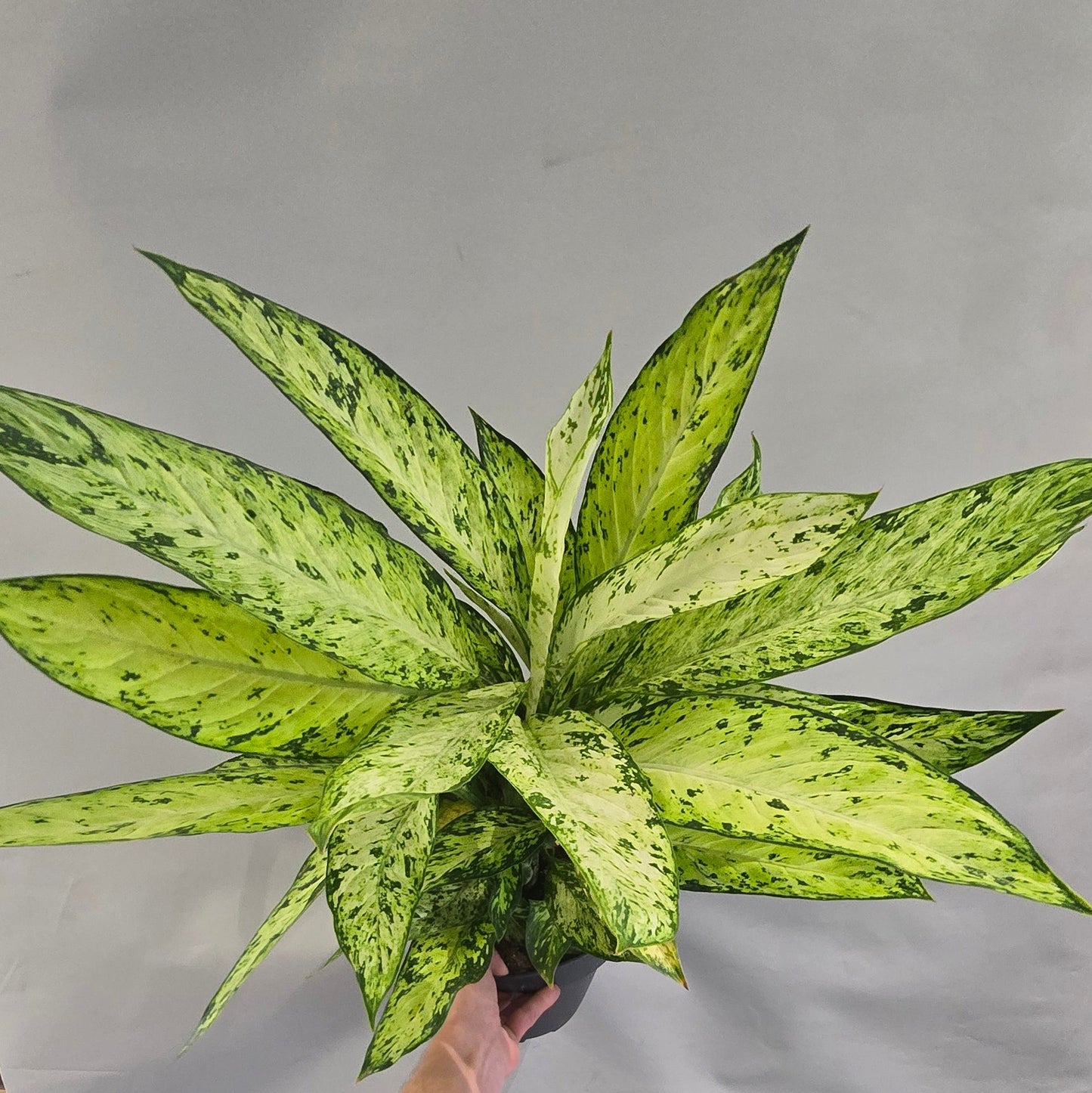My Store
Dieffenbachia Sublime
Dieffenbachia Sublime
Couldn't load pickup availability
🌿 Dieffenbachia Sublime 🌿
- 21cm Pot
Botanical name: Dieffenbachia spp. cultivar ‘Sublime’.
-
Look: Broad, oval leaves splashed with creamy white and lime-green variegation; plants reach 60–90 cm indoors and respond well to tip-pruning for compact growth.
-
Toxicity: All parts contain insoluble calcium oxalate crystals—keep away from pets and children.
☀️ Light
Dieffenbachia thrive in bright, indirect light; a spot within 1–2 m of an east- or north-facing window is ideal.
Avoid prolonged direct sun, which bleaches variegation and scorches leaves.
In low-light rooms supplement with a full-spectrum LED for 10–12 h/day.
💧 Watering
Allow the soil to dry before drenching thoroughly; empty the saucer so roots never sit in water.
During winter or in low light, reduce watering significantly.
Consistently soggy soil is the chief cause of yellow, dropping leaves and root rot.
🌡️ Temperature & Humidity
-
Temperature: 18–27 °C (65–80 °F) year-round; growth stalls below 15 °C.
-
Humidity: 50 % + is preferred—group plants, use pebble trays, or run a small humidifier if household air dips under 40 %.
🪴 Soil & Potting
Use a loose, well-drained mix—equal parts all-purpose potting soil, peat/coir, and perlite works well.
Repot every 18–24 months when roots circle the pot; choose a container only 2–3 cm wider to prevent water-logging.
🌱 Fertilising
Feed monthly in spring and summer with a balanced liquid fertiliser, skipping feedings when soil is dry or the plant is stressed.
Pause feeding from October to February as growth naturally slows.
✂️ Pruning & Propagation
Snip stray stems just above a node to maintain shape; cuttings 10–15 cm long root readily in water or moist peat-perlite.
Refresh leggier specimens by chopping the cane into 5 cm sections and laying them horizontally in a propagation box.
🐛 Common Pests & Problems
-
Pests: Watch out for spider mites, mealybugs, and scale insects. Treat infestations with insecticidal soap or neem oil.
-
Leaf Drop: Can be caused by overwatering, underwatering, or sudden changes in temperature or light.
-
Yellowing Leaves: Often a sign of overwatering or poor drainage.


